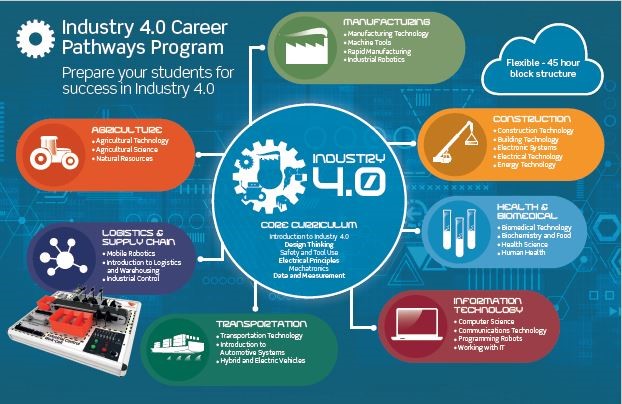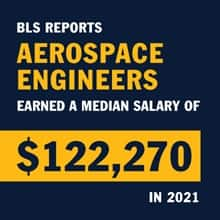
Depending on your education and experience, you can become a biomedical engineer, medical consultant, research scientist, or professor. Unlike other professions, biomedical engineers tend to earn more year over year and over a period of time. Biomedical engineers usually earn the same salary after 10 year. There are a few things to consider before beginning this career path. Consider your potential salary.
GS-6
A GS-6 average salary for a Biomedical Engineer is $64,288 per year. In 2018, the average federal tax rate for this profession was 24%, while the state of North Carolina added an additional 5.5% to the total. This would translate to take-home pay of $68,400 per year. This would mean that each paycheck would have a value of approximately $2,850. These numbers do not include metro-specific taxes.
GS-7
The federal government offers a Biomedical Engineer a GS-7 salary. You will earn more depending on your experience and job rating. If you live in Atlanta, GA, the pay range may be higher. In Atlanta, you can expect to earn as much as $61,085 per year. This is not an indication of your salary. Before applying, ensure you have verified your qualifications.

GS-8
The average GS-8 salary per year for a biomedical engineers is $93,000. This is a great salary, which is significantly more than the GS-6. A Bachelor's degree is required in biomedical engineering. CCE certification is also required. KSAs must be met in order to be eligible for a GS-9 role. They include knowledge and interpretation of applicable codes, making recommendations, and knowledge of the profession. The Biomedical Engineering must be able to understand and make ethical and practical recommendations.
GS-9
If you're interested in a career as a Biomedical Engineer, then you're in the right place. This job earns an average $89,000 per year. There are many salaries, some of which can exceed $150,000 annually. The salary can also vary depending on where you are located and your experience. These are some cities that offer more opportunities for Biomedical Engineers.
GS-12
An average salary for a GS-12 biomedical engineer is $56,345 per annum. The full performance level of this job is GS-12, though the actual grade may be lower or higher depending on the applicant's level of experience. Biomedical engineering is a federal job. The average pay for biomedical engineers depends on the job and how experienced they are. Below are some important factors that affect the salary of biomedical engineers.
GS-13
On average, a biomedical engineer earns GS-13 annually. Biomedical engineer are paid under the General Schedule, or GS, payscale in government. The minimum paygrade for biomedical engineers is GS-6, while the highest is GS-15. The base salary for starting and maximum annual earnings is GS-6. However, the actual pay depends on Locality Pay Adjustment.

GS-14
Based on experience and job classification, the average salary for biomedical engineering is GS-14. This job requires you to make many decisions and manage multiple responsibilities. An average biomedical engineer earns between $56,000-130,000 per annum. They often oversee a team of engineers and other staff members. The field of biomedical engineers is expected to grow 23 percent over the next decade mainly due to technological advances.
GS-15
GS-15 is the scale for government jobs for biomedical engineering professionals. This ranges from GS-6 up to GS-15. The salary listed is the base pay and does not include any Locality Pay Adjustment (LPA) and other bonuses. There may be higher earnings for biomedical engineering professionals in certain states than in other states. The salaries for the same job are almost identical. Although the salary for a Biomedical Engineering may differ from one state to another, it is important that you check the pay range in your area before you apply.
GS-16
The average GS-16 biomedical engineer salary is $107,000 to $146,000. While this is a good wage, it's not the best. There are other factors that affect pay, such as the location of an employee's office and experience. However, there are certain benefits that biomedical engineers can enjoy, such as health insurance, retirement plans, and more. These are just a few of the many benefits that this job title offers.
FAQ
What kind of engineer is Elon Musk?
He is an inventor who enjoys thinking outside the box.
He is also a risk taker.
He is not afraid to try new ideas, and he is willing to take risks.
Elon Musk represents a great example for someone who thinks differently. He doesn't listen to what others say. He instead tests his ideas and decides if they work. He then changes them until he gets something that works. This helps him to become more adept at solving problems and creating innovative ideas.
How long does an Engineer take?
There are many ways to get into engineering. Some people decide to start learning immediately after finishing high school. Other people go to college later.
Some students will start a degree program as soon as they graduate high school. Others will begin a two-year foundation degree course.
After completing this, they might continue onto a three or four-year honors degree. Alternately, they might choose to get a master's.
It is important to consider your future plans once you have graduated. Are you looking to go into business or stay in education?
It can take you a while to complete each stage, depending on whether you are enrolled at a university or not.
However, it is important to keep in mind that the amount of experience gained after completing a qualification does not always correlate with how long it took. Even if you have only spent one year at college it does not mean that you will have the required skills to be an engineer.
Do I need a degree for engineering?
An engineering degree does not necessarily require a bachelor's. Many employers prefer applicants who have degrees. Even if your degree is not yet earned, you can still take online classes to earn it.
Are there special qualifications required to study engineering in Canada?
No. No. All that's required is a good grade in your GCSEs. Some universities require that applicants achieve certain academic achievements before they can be accepted. Cambridge University for instance requires applicants to have A*-C in Maths, English Language, Science, and Maths.
These requirements are not met, so you may need to take additional courses to prepare you for university entrance exams.
You may also need to study additional science and math subjects. Ask your school guidance counselors about these options.
What jobs are there for engineers?
Engineers can find jobs in almost every industry including manufacturing, transportation energy, communications, finance and government.
Engineers with specializations in particular areas can often find work at companies or organizations that specialize.
An example of this is that electrical engineers can work for telecommunications firms, medical device makers, or computer chip manufacturers.
Software developers may work for websites or mobile app developers.
Computer programmers may work for tech firms like Google, Microsoft, Apple, Amazon, Facebook, or IBM.
Statistics
- 14% of Industrial engineers design systems that combine workers, machines, and more to create a product or service to eliminate wastefulness in production processes, according to BLS efficiently. (snhu.edu)
- 8% Civil engineers solve infrastructure problems. (snhu.edu)
External Links
How To
What type of engineering should I study?
If you are interested in technology, engineering can be a rewarding career. There are many types and levels of engineers. Each type has its own set skills and responsibilities. Some engineers specialize in mechanical design, while others are more focused on electrical systems.
Engineers may work directly with clients to design buildings and bridges. Others might spend their time behind the scenes developing programs or analyzing data.
No matter what type of engineer you are, you will learn scientific principles that can be applied to real-world problems.
Along with technical skills, students learn valuable business and communication skills. Engineers often collaborate with other professionals such as architects, accountants, managers, lawyers and marketers to create innovative products and services.
As a student, topics include biology, science, chemistry, biology, and physics. You will also learn how communicate effectively verbally and in writing.
No matter whether you are working for a large corporation or a small start-up, engineering offers many opportunities to advance. Many graduates find jobs right away after graduation. There are many other options available for those who want to continue their education.
You can earn a bachelor's in engineering. This will provide you with a strong foundation for your future career. You might also consider a master's in engineering, which will provide additional training in specialized fields.
A doctorate program allows you to delve deeper into a particular field. The typical Ph.D. program is completed after four years of graduate study.